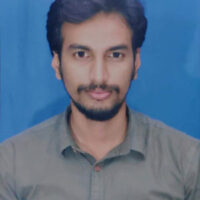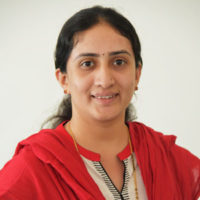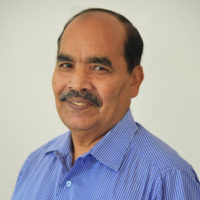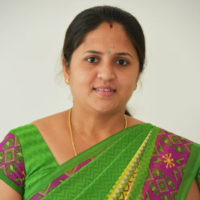DEPARTMENT OF STUDIES IN CHEMISTRY
CHEMISTRY is a Science of change and is considered the Central Science, which touches upon all other frontiers of Science/technology. There has been enormous growth in the past 30 years with many new applications in Biotechnology, Materials, Medicine, Nanotechnology, Environmental Health, Alternative Fuels and Forensic Science. By studying the basic properties of substances and transformations they undergo, the chemist finds solution to scientific challenges and contributes to the development of new technologies.
The PG Wing of SBRR Mahajana First Grade College (affiliated to the University of Mysore) offers a master’s degree in CHEMISTRY from the academic year 2013-14, which is a 2 year ( 4 semesters) programme. The Programme is designed to provide:
- Excellent foundation in chemistry, both theoretical concepts and practical applications.
- Solid training to permit graduates to obtain responsible positions in industries, research labs, government agencies and educational institutions.
- Strong preparations for pursuing Ph.D and other higher professional programs.
- Excellent student- teacher ratio and friendly atmosphere.
- Qualified faculty (Ph.Ds) as per UGC norms.
- Laboratories with state-of–the art infrastructure, which cater to the need of the University syllabus.
- Special lectures/ Seminars by outside faculty/Scientists to enhance the knowledge and improve the quality of instruction.
Career opportunities:
The different branches of chemistry include, analytical, inorganic, organic, Physical, forensic, agricultural, environmental, and biochemistry. Many career opportunities in a Wide range of fields are open to a chemist. Chemists work as researchers, analysts, environmentalists, criminologists, librarians, patent examiners, production foremen, teachers, writers, etc. They work in industries that produce everyday needs such as fertilizers, pharmaceuticals, plastics, processed food and semi-conductors. There is a wide scope for pursuing research in India and abroad.
Department Infrastructure
| Sl.No. | Equipments | Availability |
| 1 | Laboratories | 04 |
| 2 | Electrical Distillation Unit, Magnetic Stirrers , Digital Balance, Analytical Digital Balance, Colorimeters, pH Meters , Temperature controlled Electric Water Bath, Refrigerator , Centrifuge Machines, Hot Air Oven, Vacuum Pumps, Conductivity Meters, Potentiometers, Desiccators , Glass ware. | Yes |
| 3 | Wi Fi | Yes |
| 4 | Internet Centre | Yes |
| 5 | Projector | 02 |
| 6 | Scanner | 02 |
| 7 | Printer | 02 |
| 8 | Computer systems | 12 |
Projects undertaken
| Sl.No. | Principal Investigator | Project title | Type | Year of sanction | Funding agency | Total grants sanctioned | Ongoing / Completed |
| 1 | Dr. Mridula Guin | Investigation of the Hydrogen-bonding interactions in Multifunctional molecules using ab-initio methods | Minor | 2014 | UGC | Rs.4,00,000/- | Completed |
Faculty achievements
- Invited as a chairperson, N. M. Made Gowda for special talk in Indian Science Congress -2016, 103rd Indian Science Congress, 3-7th January 2016, Mysore.
- Mridula Guin’s podium presentation received the First Place Award at the UGC Sponsored National Conference on the “Frontier Areas in Chemical Science, FACS-2015” held at the Bharathi College on 10th January 2015.
Rank list of M.Sc. Chemistry
| Year | Name of the Student | Rank |
| 2021 | Ms. CHINTHANA J | First Rank |
| 2022 | Ms. VARSHA MOHAN O | First Rank |
| Ms. POOJA K O | Second Rank |
Activity of Department of Studies in Chemistry
| Sl. No. | Date | Activity | Department |
| 1 | 24-01-2019 | Invited Special Lecture – World of weightlessness Dr. M. S. Vijaya Kumar University of Mysore Manasagangotri, Mysuru - 06 | DOS in Chemistry |
| 2 | 26-04-2019 | M.Sc. second semester students organized Ethnic day | DOS in Chemistry |
| 3 | 29-04-2019 | M.Sc. second semester students organized Farewell Party to M.Sc. 4th semester students | DOS in Chemistry |
Programmes
The Department of Studies in Chemistry came into existence in the year 2012. The Department is striving to be recognized as a leader for offering societal relevant innovative Post Graduate education. It endeavors to build and enhance the capabilities of the future generation by providing quality education. The curriculum exposes the young graduates to the recent and applied knowledge of interdisciplinary branches of Chemistry. The students are given strong preparation to crack competitive exams and motivated to pursue Ph. D and higher professional programs.
Eligibility for Admission
B.Sc. with Chemistry as one of the Major/ Optional subject, provided the candidate has studied Mathematics as one of the optional subject in the Two Year P.U.C. or equivalent
Master’s Degree Program in Chemistry
| Credits to be earned | 76 |
| Core papers | 52 credits |
| Soft core | 20 credits |
| Open elective paper* | 04 credits |
*Open elective shall be entirely from different discipline of study
Credit matrix for Master’s Degree Program in Chemistry
| Credits to be earned | I | II | III | IV | Total Credits |
| Hard Core | 15 | 15 | 09 | 13 | 52 credits |
| Soft Core | 04 | 04 | 08 | 04 | 20 credits |
| Open elective | - | 04 | - | - | 04 credits |
| Total | 19 | 23 | 17 | 17 | 76 |
|
Scheme of Study and Examination |
||||
|
A: Courses; B: Title; C: Contact Hours/week; D: Credit; |
||||
| A |
B |
C |
D |
|
| CHI HCT: 1.1.
|
Concepts and Models of Inorganic Chemistry + Inorganic
Chemistry Practicals-I |
02+04 |
04 |
|
| CHO HCT: 1.2.
|
Reaction Mechanism + Organic Chemistry Practicals-I |
02+04 |
04 |
|
| CHP HCT: 1.3.
|
Physical Chemistry-I + Physical Chemistry Practicals-I |
02+04 |
04 |
|
| CHG HCT: 1.4.
|
Symmetry, Group Theory and Chemical Spectroscopy |
03 |
03 |
|
|
Note: For all Composite Courses, Theory will be evaluated for 100 marks and Practical for 100 marks separately and the average will be taken for the result declaration. |
||||
|
Soft Core |
||||
|
A: Courses; B: Title; C: Contact Hours/week; D: Credit; |
||||
|
A |
B |
C |
D |
|
| CHA SCT: 1.51.
|
Fundamentals of Chemical Analysis + Analytical Chemistry Practicals-I |
02+04 |
04 |
|
| CHI SCT: 1.52.
|
Chemistry of Selected Elements |
02 |
02 |
|
| CHO SCT: 1.53.
|
Vitamins and Medicinal Chemistry |
02 |
02 |
|
| CHP SCT: 1.54.
|
Biophysical Chemistry and Pharmacokinetics |
02 |
02 |
|
|
SECOND SEMESTER |
|||
|
A: Courses; B: Title; C: Contact Hours/week; D: Credit; |
|||
|
A |
B |
C |
D |
| CHI HCT: 2.1.
|
Coordination Chemistry + Inorganic Chemistry Practicals-II |
02+04 |
04 |
| CHO HCT: 2.2.
|
Stereochemistry and Heterocyclic Chemistry + Organic Chemistry Practicals-II |
02+04 |
04 |
| CHP HCT: 2.3.
|
Physical Chemistry-II + Physical Chemistry Practicals-II |
02+04 |
04 |
| CHG HCT: 2.4. | Molecular
Spectroscopy-II |
03 |
03 |
|
SOFT CORE |
|||
|
A: Courses; B: Title; C: Contact Hours/week; D: Credit; |
|||
|
A |
B |
C |
D |
| CHA SCT: 2.51
|
Separation Techniques + Analytical Chemistry Practicals-II |
02+04 |
04 |
| CHI SCT: 2.52. | Industrial Inorganic Chemistry |
02 |
02 |
| CHO SCT: 2.53. | Dyes and Insecticides |
02 |
02 |
| CHP SCT: 2.54.
|
Nanomaterials, Semiconductors and Superconductors |
02 |
02 |
|
OPEN ELECTIVE (for Non-Chemistry Students only) |
|||
|
A: Courses; B: Title; C: Contact Hours/week; D: Credit; |
|||
|
A |
B |
C |
D |
| CH OET: 2.1/3.1. | Chemistry |
04 |
center; |
| CH OET: 2.2/3.2. |
General Chemistry |
04 |
04 |
|
Note: Each course will have three units and one tutorial class/week |
|||
|
THIRD SEMESTER |
|||
|
A: Courses; B: Title; C: Contact Hours/week; D: Credit; |
|||
|
A |
B |
C |
D |
| CHI HCT: 3.1. | Advanced Inorganic Chemistry |
03 |
03 |
| CHO HCT: 3.2. | Reagents in Organic Synthesis |
03 |
03 |
| CHP HCT: 3.3. | Physical Chemistry-III |
03 |
03 |
|
SOFT CORE |
|||
|
A: Courses; B: Title; C: Contact Hours/week; D: Credit; |
|||
| A | B | C | D |
| CHA SCT: 3.41. | Applied Analysis I + Analytical Chemistry Practicals-III | 02+04 | 04 |
| CHI SCT: 3.42. | Frontiers in Inorganic Chemistry + Inorganic Chemistry Practicals- II | 02+04 | 04 |
| CHO SCT: 3.43 | Carbohydrates, Proteins and Nucleic Acids + Organic Chemistry Practicals-III | 02+04 | 04 |
| CHP SCT: 3.44. | Applications of Electrochemistry and Corrosion + Physical Chemistry Practical -III | 02+04 | 04 |
| NON-COMPOSITE | |||
| A: Courses; B: Title; C: Contact Hours/week; D: Credit; | |||
| A | B | C | D |
| CHI SCT: 3.42 | Bioinorganic Photochemistry | 02 | 02 |
| CHOSCT: 3.52. | Lipids, Porphyrins, Anthocyanins and Flavonoids | 02 | 02 |
| CHP SCT: 3.53. | Applications of X-ray crystallography and Quantum Chemistry | 02 | 02 |
|
OPEN ELECTIVE All the courses are same as that described in II Semester |
|||
|
FOURTH SEMESTER |
|||
| A: Courses; B: Title; C: Contact Hours/week; D: Credit; | |||
| A | B | C | D |
| CHI HCT: 4.1. | Bioinorganic Chemistry | 03 | 03 |
| CHO HCT: 4.2. | Photochemistry, Pericyclic Reactions and Organometallic Chemistry | 03 | 03 |
| CHP HCT: 4.3. | Physical Chemistry-IV | 03 | 03 |
|
SOFT CORE |
|||
Click Here To download the syllabus
The Department of Studies in Chemistry came into existence in the year 2012. The Department is striving to be recognized as a leader for offering societal relevant innovative Post Graduate education. It endeavors to build and enhance the capabilities of the future generation by providing quality education. The curriculum exposes the young graduates to the recent and applied knowledge of interdisciplinary branches of Chemistry. The students are given strong preparation to crack competitive exams and motivated to pursue Ph. D and higher professional programs.
Eligibility for Admission
B.Sc. with Chemistry as one of the Major/ Optional subject, provided the candidate has studied Mathematics as one of the optional subject in the Two Year P.U.C. or equivalent
Master’s Degree Program in Chemistry
| Credits to be earned | 76 |
| Core papers | 52 credits |
| Soft core | 20 credits |
| Open elective paper* | 04 credits |
*Open elective shall be entirely from different discipline of study
Credit matrix for Master’s Degree Program in Chemistry
| Credits to be earned | I | II | III | IV | Total Credits |
| Hard Core | 15 | 15 | 09 | 13 | 52 credits |
| Soft Core | 04 | 04 | 08 | 04 | 20 credits |
| Open elective | - | 04 | - | - | 04 credits |
| Total | 19 | 23 | 17 | 17 | 76 |
|
Scheme of Study and Examination First Semester Hard Core |
|||
|
A: Courses; B: Title; C: Contact Hours/week; D: Credit; |
|||
| A |
B |
C |
D |
| CHI HCT: 1.1. | Concepts and Models of Inorganic Chemistry + Inorganic Chemistry Practicals-I |
02+04 |
04 |
| CHO HCT: 1.2. | Reaction Mechanism + Organic Chemistry Practicals-I |
02+04 |
04 |
| CHP HCT: 1.3. | Physical Chemistry-I + Physical Chemistry Practicals-I |
02+04 |
04 |
| CHG HCT: 1.4. | Symmetry, Group Theory and Chemical Spectroscopy |
03 |
03 |
|
Note: For all Composite Courses, Theory will be evaluated for 100 marks and Practical for 100 marks separately and the average will be taken for the result declaration. |
|||
|
Soft Core |
|||
|
A: Courses; B: Title; C: Contact Hours/week; D: Credit; |
|||
|
A |
B |
C |
D |
| CHA SCT: 1.51. | Fundamentals of Chemical Analysis + Analytical Chemistry Practicals-I |
02+04 |
04 |
| CHI SCT: 1.52. | Chemistry of Selected Elements |
02 |
02 |
| CHO SCT: 1.53. | Vitamins and Medicinal Chemistry |
02 |
02 |
| CHP SCT: 1.54. | Biophysical Chemistry and Pharmacokinetics |
02 |
02 |
|
SECOND SEMESTER HARD CORE |
|||
|
A: Courses; B: Title; C: Contact Hours/week; D: Credit; |
|||
|
A |
B |
C |
D |
| CHI HCT: 2.1. | Coordination Chemistry + Inorganic Chemistry Practicals-II |
02+04 |
04 |
| CHO HCT: 2.2. | Stereochemistry and Heterocyclic Chemistry + Organic Chemistry Practicals-II |
02+04 |
04 |
| CHP HCT: 2.3. | Physical Chemistry-II + Physical Chemistry Practicals-II |
02+04 |
04 |
| CHG HCT: 2.4. | Molecular Spectroscopy-II |
03 |
03 |
|
SOFT CORE |
|||
|
A: Courses; B: Title; C: Contact Hours/week; D: Credit; |
|||
|
A |
B |
C |
D |
| CHA SCT: 2.51 | Separation Techniques + Analytical Chemistry Practicals-II |
02+04 |
04 |
| CHI SCT: 2.52. | Industrial Inorganic Chemistry |
02 |
02 |
| CHO SCT: 2.53. | Dyes and Insecticides |
02 |
02 |
| CHP SCT: 2.54. | Nanomaterials, Semiconductors and Superconductors |
02 |
02 |
|
OPEN ELECTIVE (for Non-Chemistry Students only) |
|||
|
A: Courses; B: Title; C: Contact Hours/week; D: Credit; |
|||
|
A |
B |
C |
D |
| CH OET: 2.1/3.1. | Chemistry |
04 |
center; |
| CH OET: 2.2/3.2. |
General Chemistry |
04 |
04 |
|
Note: Each course will have three units and one tutorial class/week |
|||
|
THIRD SEMESTER HARD CORE |
|||
|
A: Courses; B: Title; C: Contact Hours/week; D: Credit; |
|||
|
A |
B |
C |
D |
| CHI HCT: 3.1. | Advanced Inorganic Chemistry |
03 |
03 |
| CHO HCT: 3.2. | Reagents in Organic Synthesis |
03 |
03 |
| CHP HCT: 3.3. | Physical Chemistry-III |
03 |
03 |
|
SOFT CORE COMPOSITE |
|||
|
A: Courses; B: Title; C: Contact Hours/week; D: Credit; |
|||
| A | B | C | D |
| CHA SCT: 3.41. | Applied Analysis I + Analytical Chemistry Practicals-III | 02+04 | 04 |
| CHI SCT: 3.42. | Frontiers in Inorganic Chemistry + Inorganic Chemistry Practicals- II | 02+04 | 04 |
| CHO SCT: 3.43 | Carbohydrates, Proteins and Nucleic Acids + Organic Chemistry Practicals-III | 02+04 | 04 |
| CHP SCT: 3.44. | Applications of Electrochemistry and Corrosion + Physical Chemistry Practical -III | 02+04 | 04 |
| NON-COMPOSITE | |||
| A: Courses; B: Title; C: Contact Hours/week; D: Credit; | |||
| A | B | C | D |
| CHI SCT: 3.42 | Bioinorganic Photochemistry | 02 | 02 |
| CHOSCT: 3.52. | Lipids, Porphyrins, Anthocyanins and Flavonoids | 02 | 02 |
| CHP SCT: 3.53. | Applications of X-ray crystallography and Quantum Chemistry | 02 | 02 |
|
OPEN ELECTIVE |
|||
|
FOURTH SEMESTER HARD CORE |
|||
| A: Courses; B: Title; C: Contact Hours/week; D: Credit; | |||
| A | B | C | D |
| CHI HCT: 4.1. | Bioinorganic Chemistry | 03 | 03 |
| CHO HCT: 4.2. | Photochemistry, Pericyclic Reactions and Organometallic Chemistry | 03 | 03 |
| CHP HCT: 4.3. | Physical Chemistry-IV | 03 | 03 |
|
SOFT CORE |
|||
Click Here To download the syllabus
Faculty
Dr. Roopa R A
Dr. Anant N. Nayak
Dr. Manasa H. S

Mr. Mahendra Kumar H S




